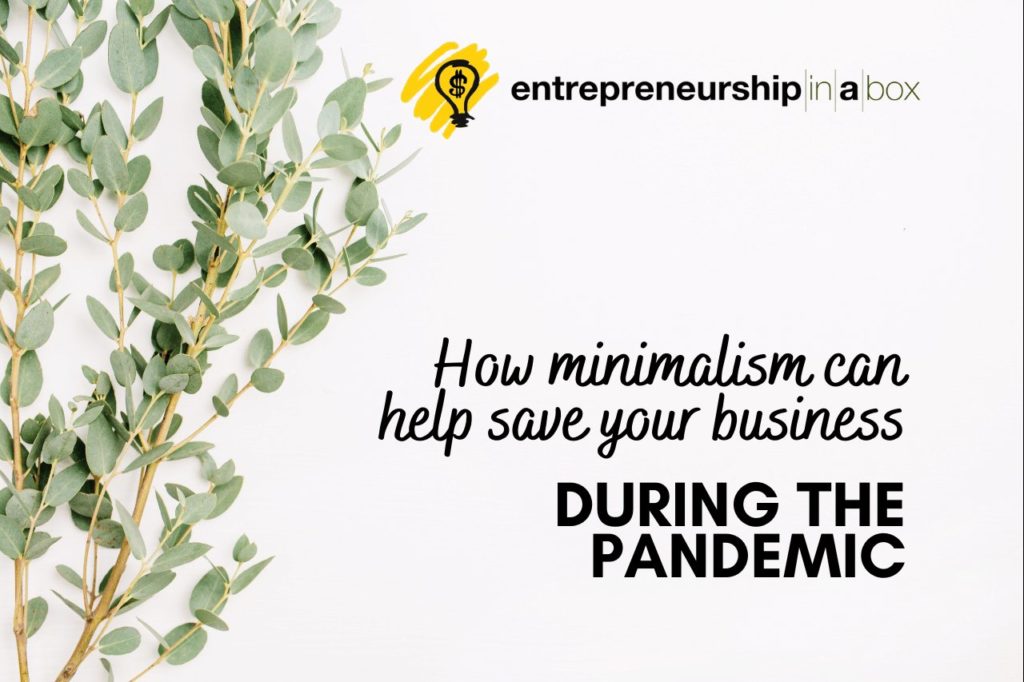During the pandemic, many small- to medium-sized businesses have gone the downsizing route in the hopes of keeping them afloat. But since the coronavirus is not going anywhere soon, it is a great idea to make your business more resilient for the next big hit.
While an army of business pundits encourage entrepreneurs to focus on the next big thing and to engage in a relentless chase of the so-called unicorns, there’s a more realistic approach you could take in current conditions: minimalism.
What is minimalism?
Minimalism is a response to rabid consumerism. Its chief goal is freedom from unnecessary possessions in order to get rid of distractions that prevent us from leading a meaningful and fulfilling life. In recent years, the mindset has been embraced by more and more entrepreneurs in their efforts to focus more on quality, rather than quantity.
But minimalism is not for everyone. It takes a lot of courage and determination to reevaluate one’s life or business model and ruthlessly make the necessary changes for a big dose of added value in one’s life or business. It is a mindset that entrepreneurs need to embrace 24/7 if they want consistent results in their business.
Take baby steps
In the current economic contraction spurred by the ongoing global health crisis, one of the best courses of action is the baby steps approach. Bigger is not always better and, in the present economic uncertainty, keeping things small and carefully planning every single step is what you could do to minimize risks.
The old mentality focused on bigger, louder, faster, stronger is simply not feasible for small businesses striving to survive. So, take baby steps when it comes to your workforce (slow to hire, quick to hire), portfolio (steer clear of opportunities too good to be true or too costly for your company in the long run), and any other areas you deem necessary. Focus on perfecting and streamlining your business, rather than on expanding it unnecessarily.
In the post-corona economic minefield, a wrong move could prove fatal to any business.
Trim the excess fat
Now is the time to get out of the autopilot mode and make the necessary adjustments where things are less than stellar. It is critical to trim unnecessary costs that weigh your business down, ditch unnecessary projects, and take care of unnecessary distractions that slow you down, such as unnecessary board meetings and complex decision-making processes.
But that means that you will need to constantly ask yourself the key questions:
- “Do we really need (to do) this?”
- “Wouldn’t it be better if…”
- “Is this expense absolutely necessary? Are there cheaper alternatives?”
- “Is this new client worth the risk?”
- And so on.
Depending on the answers to these questions, you can trim the excess fat from your business and help yourself run it more smoothly. What’s more, a streamlined business will help you focus better on what is truly important such as keeping existing clients happy instead of attracting new ones and future-proofing your business against market disruptions.
However, don’t fall into the trap of trimming to the bone. For example, do not downsize your workforce excessively. You might need the extra men when a key employee gets sick or a new project needs more manpower than usual. Also, don’t skimp on critical things like workplace safety. If one of your employees gets badly injured, you risk getting dragged into a costly personal injury case, which is simply not worth it.
Focus on creativity…
…and encourage creativity in your team, too. If you’re going the minimalist way, you need to constantly remind yourself that less is more. To keep costs down, you need to work with what you’ve got rather than accumulate unnecessary assets to reach a goal. But that requires creativity on your and your team’s part.
For instance, if you need an entry-level website developer for a particular project, why hiring a new employee or splurging on a new contractor when a member of your team already does web design as a hobby? Further, if you need a new piece of software, why invest in building it from scratch when you already have an existing piece of software that needs just a handful of adjustments to meet your needs?
Let your creativity run wild and only spend money on new resources when absolutely necessary.
Conclusion
With the post-corona economic crisis heralded as “the worst since World War II” and a grim global economic outlook on the horizon, many entrepreneurs are making gargantuan efforts to keep their businesses afloat. Minimalism is a simple but highly efficient method of making your company more streamlined and resilient as history has proven time and again that complex systems are inherently fragile while simple ones are often the most resilient.





